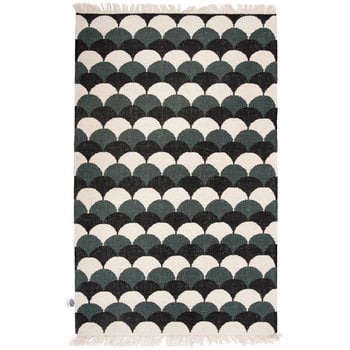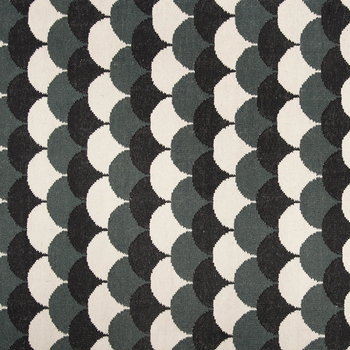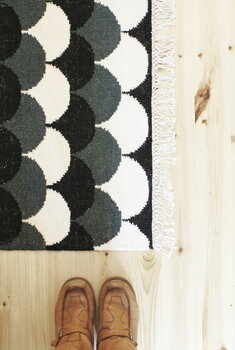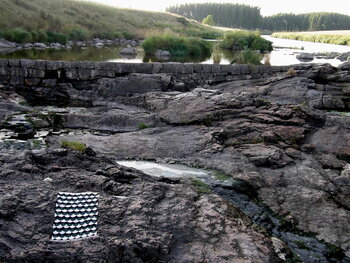Suomu is a classic wool rug designed by Susanna Vento for the Finnish company Mum’s. The name, Suomu, is Finnish for fish scale. The rhythmic scale patterns of the rug give a graphic touch for many different interiors.
Mum’s wool rugs are woven by hand from local, mulesing-free wool in Mum’s workshop in Northern India with a strong respect for ethical working conditions and sustainable production.














